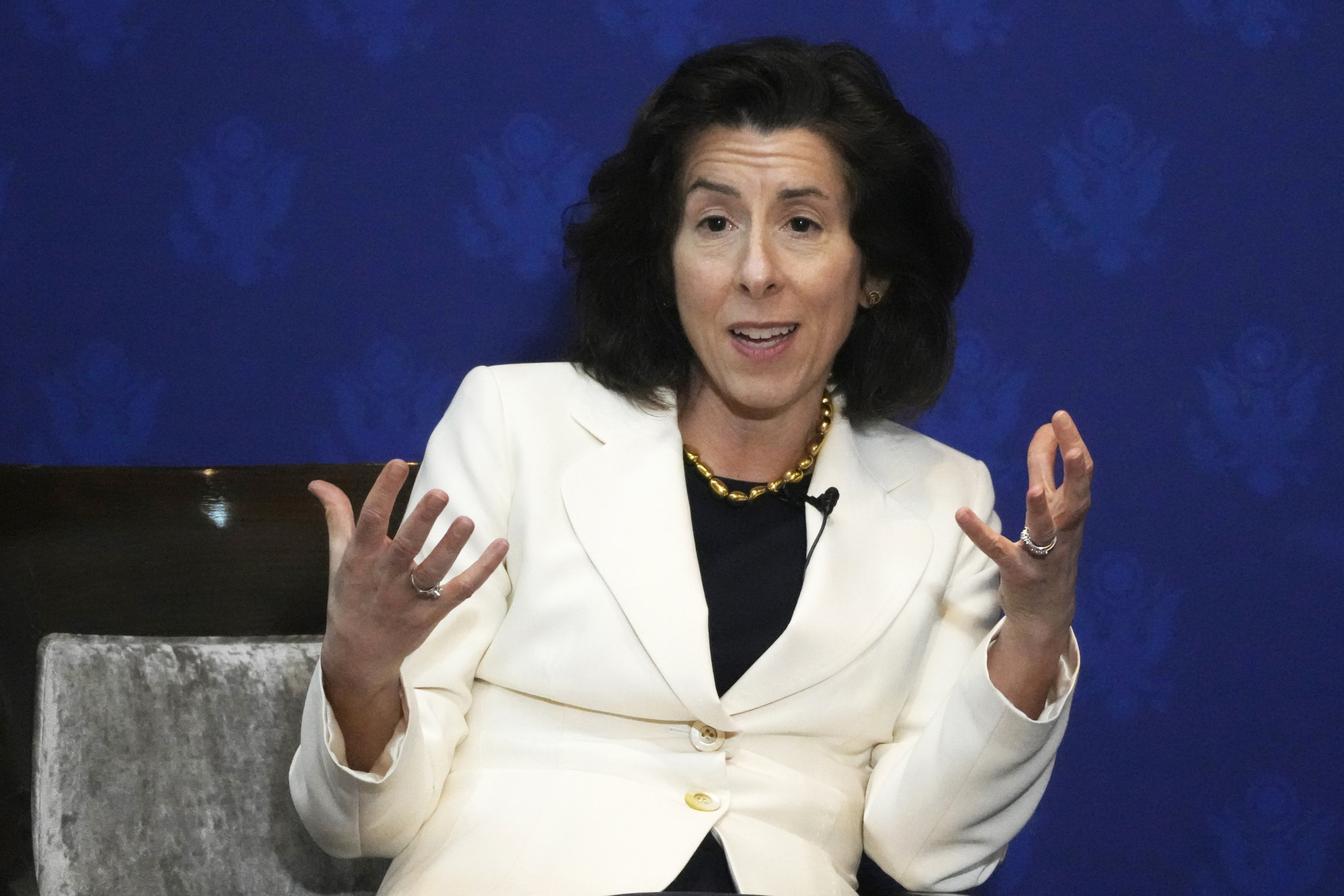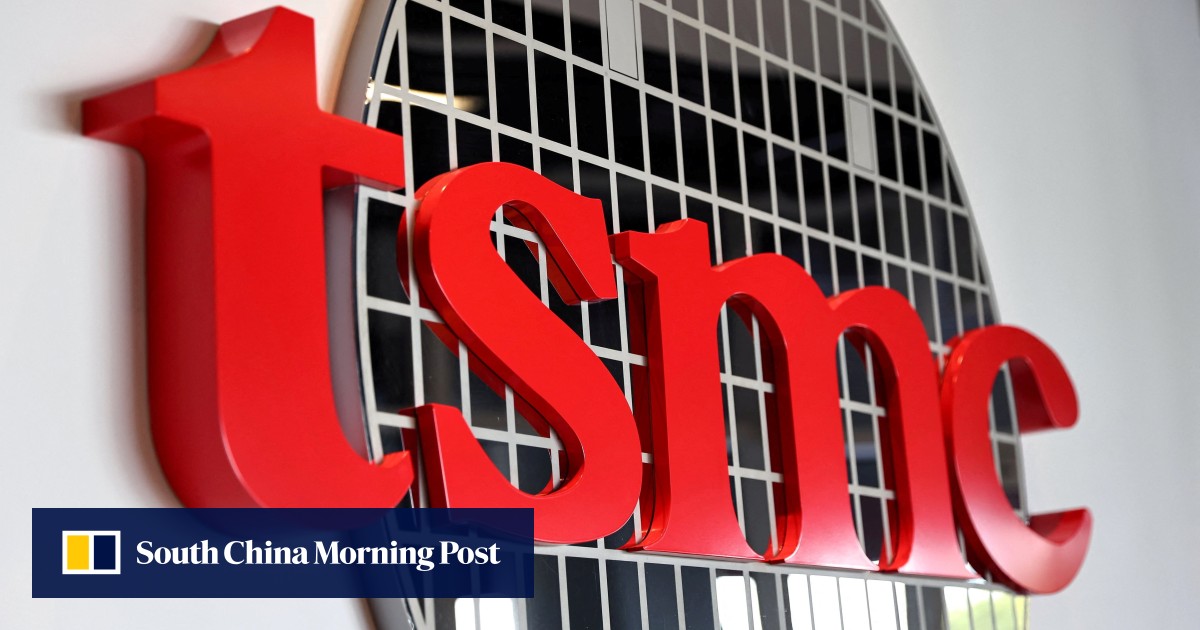The US plans to award Taiwan Semiconductor Manufacturing Co. US$6.6 billion in grants and as much as US$5 billion in loans to help the world’s top chip maker build factories in Arizona, expanding President Joe Biden’s effort to boost domestic production of critical technology.
Under the preliminary agreement announced by the US on Monday, TSMC will construct a third factory in Phoenix, adding to two facilities in the state that are expected to begin production in 2025 and 2028. In total, the package will support more than US$65 billion in investments at the three plants by TSMC, the go-to chip maker for companies such as Apple and Nvidia.
TSMC’s third fabrication site, or fab, will rely on next-generation 2-nanometer process technology, and is slated to be operational before the end of the decade.
For the first time ever, we will be making at scale the most advanced semiconductor chips on the planet here in the United States of America
US Commerce Secretary Gina Raimondo said the 2nm chips are essential to emerging technologies including artificial intelligence, as well as for the military.
“For the first time ever, we will be making at scale the most advanced semiconductor chips on the planet here in the United States of America, by the way, with American workers,” Raimondo told reporters in a briefing ahead of the announcement.
TSMC is planning to first make 2nm chips in Taiwan in 2025.
TSMC’s award marks another milestone in Biden’s push to boost the US semiconductor industry with the 2022 Chips and Science Act. It’s one of the largest announced under the programme, which set aside US$39 billion in direct grants – plus loans and guarantees worth US$75 billion – to persuade semiconductor companies to build factories in America after decades of shifting production abroad.
‘The air is fresh’: TSMC’s new Japan factory sparks travel rush from Taiwan
‘The air is fresh’: TSMC’s new Japan factory sparks travel rush from Taiwan
TSMC’s American depositary receipts gained as much as 2 per cent in premarket trading after the announcement.
Intel has already signed a preliminary agreement for nearly US$20 billion in grants and loans, while Samsung Electronics of South Korea is expected to receive a grant of more than US$6 billion. The Commerce Department has also handed three awards to companies that manufacture older-generation chips and is expected to announce a multibillion dollar package for Micron Technology Inc. in coming weeks.
Companies have announced more than US$200 billion in US investments since Biden took office, with the biggest clusters emerging in Arizona, Texas and New York. The agreement unveiled on Monday emerged after months of negotiations with the Commerce Department and TSMC, the world’s largest contract chip maker by market share.
Nvidia, TSMC CEOs meet in Taiwan as chip constraints threaten AI boom
Nvidia, TSMC CEOs meet in Taiwan as chip constraints threaten AI boom
“The proposed funding from the Chips and Science Act would provide TSMC the opportunity to make this unprecedented investment and to offer our foundry service of the most advanced manufacturing technologies in the United States,” TSMC Chairman Mark Liu said in a statement.
TSMC’s work in Phoenix carries added political stakes for Biden, who defeated Donald Trump in Arizona by roughly 10,000 votes in 2020 and is seeking another win in the closely contested state to help secure re-election. Though its Arizona investment was initiated during Trump’s final year in office, TSMC’s projects in the state have become increasingly entwined with Biden’s campaign message on revitalising the economy.
Arizona has reaped some of the biggest rewards from the Chips Act, with a massive expansion by Intel in addition to dozens of supply-chain initiatives. The TSMC grant includes US$50 million in funding to train local workers, and will create 6,000 hi-tech manufacturing jobs and more than 20,000 construction jobs, Raimondo said.

The project also is expected to benefit from a tax credit for investments, according to another senior administration official, who discussed the award on condition of anonymity ahead of the announcement.
The TSMC site has seen several setbacks, including months of conflict with trade unions that resulted in delays at the first factory. The second facility, which is now slated to begin manufacturing 2nm and 3nm chips in 2028, was delayed from 2026 due to market conditions and uncertainty about levels of US government support. At least one TSMC supplier has scrapped its planned Arizona project, citing workforce difficulties.
It will be months before TSMC receives any of the promised funding, as the company enters a due-diligence period before reaching a final, binding agreement. Money will then be disbursed based on construction and production benchmarks, and could be clawed back if TSMC doesn’t hold up its end of the deal.
The company has other international projects under way in Japan and Germany. TSMC held an opening ceremony this year for its Kumamoto fab, which the Japanese

